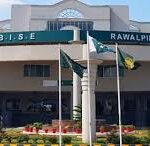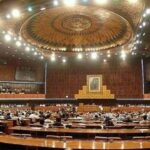ISLAMABAD, Dec 23 (APP): President Dr Arif Alvi Wednesday, while calling for women empowerment through inclusive social and economic policies, emphasized true implementation of pro-women laws by doing away with the cultural taboos.
Addressing the Brainstorming Session on Gender-Based Discrepancies and Promotion of Legal, Economic and Social Empowerment of Women hosted by the Aiwan-s-Sadr here, the president said his office had been actively engaged for addressing the issues like rights of women and disabled people.
The event was attended by federal ministers Barrister Farogh Nasim, Dr Shireen Mazari, Shafqat Mahmood, Shibli Faraz, Minister of State Zartaj Gul, special assistants Dr Sania Nishtar and Dr Faisal Sultan, Parliamentary Secretary on Law Malika Bukhari, prominent artists and media representatives. The State Bank Governor Reza Baqir and various social activists also joined the event through video link.
The event featured a working session on issues confronting women, including property rights, legal, media and other sectors which later presented their recommendations for onward consideration by the government.
The president viewed that the session would provide a road-map to the government for devising strategies on women empowerment as was also taught by the Holy Quran and Holy Prophet Muhammad (Peace be Upon Him) in his last sermon.
He said being a gender neutral, the country’s constitution also guaranteed women rights and even provided special provisions; however the implementation of the relevant laws was far more important.
Even Quaid-e-Azam Muhammad Ali Jinnah, he said, had also stated that no nation could reach the height of glory without protecting women rights. He believed that almost 98 percent of the society was unanimous on women rights; however, it was the victim of some cultural taboos.
Highlighting the issues confronting women like insecurity at police stations, delayed disposal of divorce cases, hesitance to register harassment or rape cases, and domestic violence, the president said such sittings would provide a timeline for relief to the women.
He said owing to lack of awareness, the women were not properly benefiting the loans scheme exclusively announced for them to run small and medium enterprises.
Dr Alvi told the gathering that almost 40 percent pregnancies took place owing to non-availability of contraceptives which must also be thought of while devising the policies.
The president said First Lady Samina Alvi had also been actively running an awareness campaign on breast cancer.
He said the Presidency had also written to the Council of Islamic Ideology to promote the breastfeeding through the pulpit, which would ultimately address the issues of malnutrition and overgrowing population.
Later, the representatives of respective working groups presented their recommendations on rights of women in media, their access to education, health, legal rights and economic empowerment.
Following the recommendations, the president, in his concluding remarks, said all the proposals would be forwarded to the ministries concerned for their point-wise response along with the financial implication of the suggested measures.
He called for a wider discussion in media on women rights and awareness among them about the measures being taken for their facilitation.
Endorsing the pre-dominant campaign about harassment of women on social media, the president said though the men were also the victim of the tendency but the bigger damage was to the women.
He urged the political parties for their non-partisan reaction in such case.
He also agreed to the demand for women-specific facilities like daycare centers, washrooms at workplaces and called for a survey of offices in this regard.
The president also called for skill-based education of women to enhance their employability.
Calling women the lowest risk in debt market, the president called for safe transport, workplace, women courts and their security at police station.
In his remarks, Law Minister Barrister Farogh Nasim said country’s no law permitted any discrimination towards women and highlighted the pro-women laws passed by the government including anti-rape law, legal aid authority and protection of women inheritance rights.
He also endorsed the President’s view that the government had a powerful agenda on human rights and said the implementation was the real issue.
He, however expressed dissatisfaction over the performance of the women ombudsperson which was supposed to provide easy and cost-free justice to the women.
He said under a new law, the NADRA had been empowered to issue succession certificate within 15 days which otherwise used to take even10 years in courts.
He said the government had established an anti-rape crisis cell and abolished two-finger test to ascertain the rape claim owing to its derogatory nature.
Information Minister Senator Shibli Faraz said the protection of women rights could not be ensured without changing public mindset which unfortunately had been transformed after 80s.
He called for revival of cultural values by messaging through the drama and viewed that no media or cultural policy could be enforced successfully by keeping half of the population aloof or in isolation.
Human Rights Minister Dr Shireen Mazari appreciated the President for “redefining the presidency in a positive way” and apprised the audience of ministry’s efforts for protection of women, children, transgender and disabled people’s rights.
She said the ministry had set up a helpline and developed a mobile application 1099 to report any harassment complaint just by pushing a button.
She viewed the real issue confronting women was ‘violence’ which they could face after claiming or even achieving their right of inheritance or any other.
She emphasized the government for any legislation to allow the family members of a disappeared person to use his bank account or dispose of properties to make their living, after a specific time-frame.
SAPM on Health Dr Faisal Sultan said health and education sectors provided the most number of jobs to women.
He said for the first time, nursing degree had been given a the bachelor status which would improve their standing the society as well as income.
However, the SAPM called for addressing the factors which kept women doctors from joining workforce as according to data, around 40 percent medical graduates did not even get license with majority including women.
He said the government was about to launch a $2 billion nutrition programme for women particularly the girls.
SAPM Dr Sania Nishtar highlighted the government’s pro-women initiatives under Ehsaas umbrella including cash transfer for 7 million women, interest-free loan, Ehsaas Aamdan and upcoming one woman-one account facility for a modern cash transfer system to the nearby bank instead of camps.
She said the women were the major beneficiaries of Ehsaas Nashonuma and Waseela Taleem and half of the education scholarship.
Federal Education Minister Shafqat Mahmood said the statistics of women in education were yet discouraging, be it the enrollment in schools or drop-out ratio particularly in senior classes. He said as per literacy rate, 71 percent were male and 49 percent women.
He said the country would have to adopt virtual schooling by opting appropriate technology like tablet, projector or any other mode to ensure access of education to girls particularly in far-flung areas.
State Bank Governor Raza Baqir reiterated the central bank’s resolve for financial inclusion of women through different initiatives. He said SBP had introduced an easy loan scheme for women but they were not fully utilizing it.
Under Kamyab Jawan Scheme, a 25 percent quota had been allocated for women which they should take advantage of, he added.
State Minister for Climate Change Zartaj Gul emphasized any legislation to address the issues faced by the women making climate-induced migration to ensure their privacy.
She said the ministry would launch an initiative of energy efficient stove in 12 district in order to reduce the use of wood for cooking.
Parliamentary Secretary Malika Bukhari viewed that the session would help the government get feedback from the civil society, media and artists to formulate its policies and address the shortcoming.
She urged the women parliamentarians to play their role in their respective constituencies for women empowerment and protection of their rights.
In her recommendation for women in media, Mayra Imran said the women became the foremost victim of any layoff in the media organizations. Even a very few women experts were invited on media to speak on the issues, she said and called for early passage of journalist protection bill.
She demanded the de-notification of social media law by the government and called for registration of political parties’ social media cells with the Election Commission.
On women legal rights, Valeri Khan advocated for law to nullify the below-18 marriage and proposed establishment of child and women desks at police stations and forensic labs in every province.
Ali Sarfaraz, who proposed measures on women economic empowerment, drew attention to women low employment and their inadequate access to finance.
Calling for creating safe working place, safe transport, maternity leave, pay equality and recognition of work by women.
Prominent singer Shahzad Roy, stressed the need for addressing uneven growth and amending law on corporal punishment for Islamabad.
He called for President’s role to seek decree by Ulema allowing girls education in schools in different groups at areas lacking the facility.
On women role in health, Rukhsana Anwar, a lady health worker, urged the government for widening the scope of lady health workers to dengue, corona, population welfare and other subjects, not mere polio.
Considering the need, she stressed for more recruitment of lady health workers and nurses.
On climate change, Malaika Raza proposed giving away organic seeds to rural women to enhance their earning through agriculture.
She also suggested access of women to urban markets for selling their home made goods.





